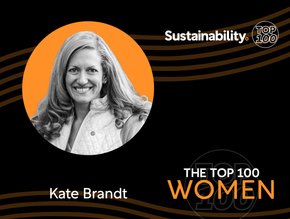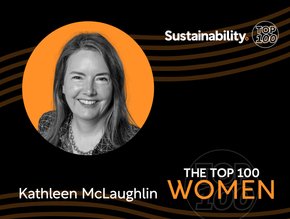Sustainability: the public sector supplier guiding force

Sustainability has gripped many industries in recent years as pressure grows to tackle wider planetary challenges such as resource preservation and climate change. It has also become a guiding force for businesses that want to be better operators, not just to meet targets, but to future-proof our society and environment.
While the focus to date has mainly been on the impact and role of sustainability on consumer businesses and global corporations, the conversation is now moving towards the public sector.
We’re seeing most public sector departments from health, defence to education all coming up against ambitious sustainability targets and how they engage with suppliers is key to delivering against those targets.
But placing the emphasis on sustainability in day-to-day operations isn’t only a necessity due to the targets in place, disrupted supply chains and rising costs have also started to make an impact on service and reliability. All of this coupled with the critical nature of the work the public sector undertakes, the importance of sustainability in the rules of engagement are creating a new supplier dynamic.
The key question suppliers must now answer is how is what they’re supplying going to help meet the sustainability and wider ESG targets of the public sector? If they’re not able to answer those questions they will miss out on securing contracts altogether, and likely lose the contracts they already are engaged on.
IT as facilitator of sustainable change
As a sector already going through much needed digital transformation, the pressure is on IT suppliers to support the public sector with reliable, high-performance IT. However, with similar pressures to become more sustainable, the Greening Government ICT and Digital Services Strategy 2020 - 2025 has been put into place to keep suppliers well managed. This strategic policy sets out how the government will work in partnership with industry and other sectors to provide ICT and digital services to: help achieve the United Nation’s Sustainable Development Goals, implement the UK Government’s 25 Year Environment Plan and help meet the Government’s net zero obligations and commitments.
Within the policy, there are three business rules outlined that suppliers are asked to follow in order to support the public sector and foster healthy, sustainable supplier relationships.
Rule 1: Going Net Zero in Carbon
With the government setting targets for other businesses to follow, ensuring the public sector raises its own sustainability standards is essential as it continues to hold focus over its net zero targets. The current government message around reaching net zero is a target of 2050, however, continued monitoring of progress is likely to mean a growing focus as years go by. By eliminating Scope 3 emissions where possible through its supply chain, the public sector can make huge steps towards carbon neutral processes on the way to net zero
Suppliers can help the public sector go net zero by decarbonising their own processes and using innovative procedures such as remanufactured hardware. By adopting carbon neutral processes, suppliers can assist the public sector in reducing Scope 3 emissions by cleaning up its supply chain, as well as assisting with knowledge and expertise on their specific industry. Using IT hardware that minimises its impact to the planet is a good first step, with remanufactured technology now a leading alternative to brand new.
Rule 2: Creating a circular economy
The long-term success of a sustainable public sector will ultimately depend on the development of a circular economy within its supplier base. Reducing carbon emissions in the short term is a priority but the long-term success will depend on a developed circular economy to reduce the stress that carbon reduction has on processes. Protecting natural resources is also a growing concern and carbon offsetting can only go so far in the long term.
Resource perseveration should be the number one overall goal of a sustainable public sector, ensuring that the natural environment is exploited as little as possible, while prolonging the already scarce resources that the planet has. The circular economy is central to this by re-utilising already produced resources and materials.
The supplier’s role in the future of the public sector’s sustainability isn’t just decarbonising its own estate to support with net zero targets, its adopting processes rooted in the circular economy. By creating a circular economy that the public sector can operate within, suppliers in the IT channel can improve time to delivery, reducing the growing pile up of e-waste and positively impact their own bottom line by taking in old technology to be re-used.
Rule 3 - Increasing assurance in the supply chain
Reporting in public sector supply chains is now a top priority, both to ensure environmental targets are hit but also that wider ESG initiatives are met. Lack of assurance is a key barrier to healthy supplier relationships, with public sector organisations demanding transparency over supply chains and needing the confidence that they can meet demand.
However, while sustainable targets might be the most widely reported focus, cleaning up the supply chain goes beyond the E of ESG targets. Social and Governance initiatives will be looked at to ensure that forced, bonded and modern-day slave labour is eradicated from supply chains, as well as assurance that products are not made from conflict minerals.
Operational resilience also remains a key factor in assured supply chains to protect the critical services supplied by the sector. With the global chip shortage recently and delays due to the pandemic, supply chains have shown they aren’t bullet proof and can’t always meet demand. With the new rules of engagement, creating an assured, resilient, and transparent supply chain can help suppliers not only win contracts but also become reliable and trusted partners to the public sector. With global disruption likely to continue, utilising the existing resources sat in the mountain of e-waste created over the pastfew decades is a good place to start. And with the technology available to us to create good-as-new second life hardware, this should be the top of every supplier’s priority list.
Sustainability is the key to long term success
There is a huge opportunity for the IT channel to be the frontrunners in sustainable engagement with the public sector by abiding by the three rules outlined above. This will not only improve supplier relationships with the sector but also help it reach its sustainability goals. The public sector needs effective, up to date technology as it undergoes digital transformation but wants to do so sustainably and on a tight budget. The latest innovative technology and processes such as remanufacturing allows resellers and suppliers to support the sector across its three rules of net zero, the circular economy and assurance. It has both short term returns of cost saving and reliability of supply as well as long term investment into the sector through sustainability and circular economy processes.
Working with the public sector in a sustainable manner is now a necessity and the IT industry should be taking the lead in best practice, but suppliers must either learn to adapt to meet the new sustainable rules of engagement or seek support in doing so, otherwise they ultimately will miss out on securing contracts due to lack of focus on sustainability targets.
Byline by Steve Haskew, Head of Sustainability at Circular Computing






